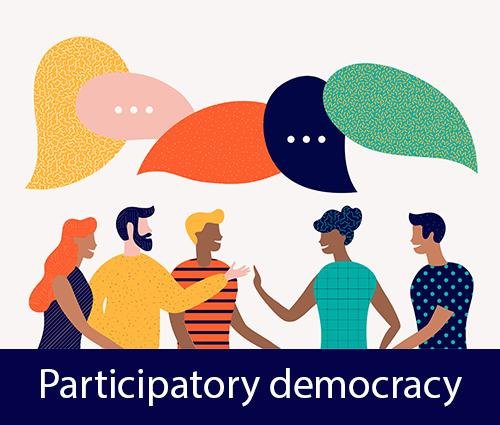Democracy: The Role of Citizen Participation
The Role of Citizen Participation in Democracy
Democracy is a system of government in which power is held by the people, either directly or through their elected representatives.
Active citizen participation is a key element of democracy, enabling individuals to engage in the political process and also influence how they are governed. In this essay, we will explore the role of citizen participation in democracy.

One of the main benefits of citizen participation in democracy is that it promotes transparency also accountability in government.
When citizens engage in the political process, they are more likely to hold their elected officials accountable for their actions.
An engaged citizenry can help reduce corruption and promote good governance.
Another benefit of citizen participation in democracy is that it promotes diversity and inclusivity in decision-making. When citizens from diverse backgrounds and perspectives can participate in the political process, they are more likely to bring a range of ideas and viewpoints to the table.
This can help to promote more creative and effective solutions to complex problems.
Furthermore, citizen participation in democracy can help to promote social cohesion and trust in government. They are more likely to trust in the political process and in their elected officials.
This can help to reduce social unrest and promote stability. As citizens are more likely to work together towards common goals.
In addition, citizen participation in democracy can help to promote civic education and political awareness. Engaged citizens are more likely to learn about community issues and understand government operations.
This promotes an informed and engaged electorate, enabling citizens to make better decisions about voting and policy support.
There are several ways in which citizens can participate in democracy. One of the most common ways is through voting in elections.
This ensures elected officials are accountable to their constituents also policies reflect their needs and priorities.
In addition to voting, citizens can participate in democracy through a variety of other means, such as attending public meetings. Participating in public consultations, joining advocacy groups or political parties, and engaging in peaceful protest.
These forms of citizen participation can help to bring attention to important issues. Mobilize support for policy change, also hold elected officials accountable for their actions.
It is important to note that not all citizens have equal opportunities to participate in democracy. Some groups, such as marginalized communities or those with limited resources or access to information, may face barriers to participation.
Governments and civil society organizations need to work to promote greater inclusivity also diversity in the political process.
Conclusion
Citizen participation is a crucial element of democracy. It promotes transparency and accountability in government also promotes diversity, and inclusivity in decision-making. Helps to promote social cohesion and trust in government, and promotes civic education and political awareness.
There are many ways in which citizens can participate in democracy, including voting, and attending public meetings. Participating in public consultations, joining advocacy groups or political parties, also engaging in peaceful protest.
Governments and civil society organizations need to work to promote greater inclusivity and diversity in the political process. To ensure that all citizens have an equal say in how they are governed. 카지노사이트
